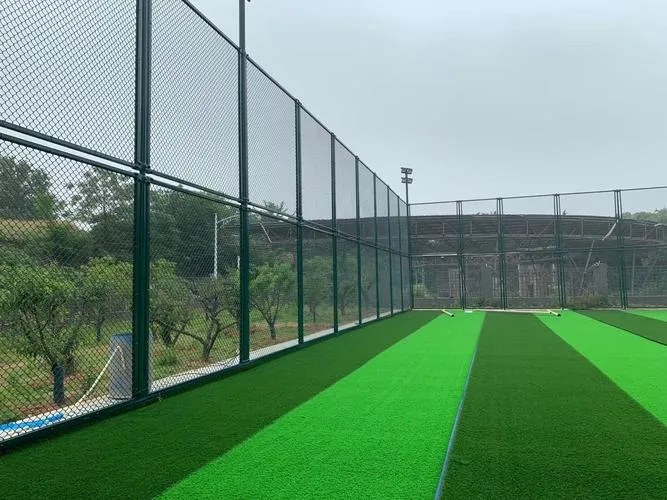 TEL:
+86-13102802206
TEL:
+86-13102802206
 Email:
fencenetting@china.com
Email:
fencenetting@china.com
 Language
Language
 TEL:
+86-13102802206
TEL:
+86-13102802206
 Email:
fencenetting@china.com
Email:
fencenetting@china.com
 Language
Language


Understanding Chicken Wire and Its Uses in Farming and Gardening
Chicken wire, commonly referred to as poultry netting, is a versatile and widely used material in various agricultural and gardening applications. The 1-inch mesh variant is particularly popular due to its balance of durability and flexibility. This article will explore the characteristics, uses, and benefits of chicken wire, specifically the 1-inch mesh type, and how it can enhance both farming practices and garden aesthetics.
What is Chicken Wire?
Chicken wire is a type of hexagonal wire mesh made from galvanized steel or PVC-coated metal. It is typically lightweight yet strong enough to withstand various environmental conditions. The wire comes in various gauges and mesh sizes, with 1-inch mesh being among the most commonly used configurations. The hexagonal shape allows for flexibility and ease of installation, making it a favorite among gardeners and farmers alike.
Key Characteristics of 1-Inch Mesh Chicken Wire
The 1-inch mesh size is designed to prevent smaller animals, like chickens, rabbits, and birds, from accessing protected areas while still allowing for adequate visibility and airflow. The galvanized coating not only provides resistance against rust and corrosion but also prolongs the lifespan of the wire, making it suitable for outdoor use. Furthermore, its lightweight nature permits easy handling and allows for various applications without the need for heavy-duty tools.
Practical Applications
1. Poultry Fencing
One of the primary uses of 1-inch chicken wire is in poultry farming. It is commonly employed to construct pens and coops that protect chickens from predators. Ensuring that birds have a safe and secure space is vital for their health and productivity. The 1-inch mesh discourages intrusions from animals that might squeeze through larger openings, thereby enhancing the well-being of the flock.
2. Garden Protection

In addition to its use in poultry farming, chicken wire serves as a protective barrier for gardens. It effectively keeps out rabbits, deer, and other herbivorous pests that can devastate crops. Gardeners often create fences or enclosures using chicken wire to create a safe haven for their plants, ensuring that they can grow without interference from unwanted visitors.
3. Plant Support
Chicken wire is also beneficial for supporting climbing plants and vines. By strategically placing sections of 1-inch mesh near these plants, gardeners can create an ideal environment for growth while providing the necessary structure for plants like peas, beans, and cucumbers to climb. This aid in vertical gardening not only optimizes space but also enhances the overall aesthetics of the garden.
4. Compost Bins
Another innovative use of chicken wire is in the construction of compost bins. By forming a cylindrical or rectangular shape with the wire, gardeners can create a simple yet effective composting system. The open structure allows for aeration and moisture retention, essential components in the composting process.
Benefits of Using Chicken Wire
The benefits of utilizing chicken wire in various scenarios extend far beyond its initial purposes. For instance, it is relatively inexpensive, making it accessible for both large-scale farmers and small-scale gardeners. Its versatility allows for multiple applications, and its durability ensures that it can withstand the elements over time.
Additionally, chicken wire is easily customizable. It can be cut, shaped, and molded to fit different projects, making it a practical option for various DIY endeavors. Whether creating protective barriers, supports for plants, or composting systems, the adaptability of chicken wire makes it an indispensable tool in agriculture and gardening.
Conclusion
In summary, 1-inch chicken wire is a valuable resource for both farmers and gardeners. Its durability, versatility, and cost-effectiveness make it the go-to choice for numerous applications, from protecting poultry and plants to supporting growth and facilitating composting. As more people engage in gardening and farming, understanding the benefits and uses of chicken wire will undoubtedly prove beneficial in fostering sustainable practices and enhancing garden productivity.